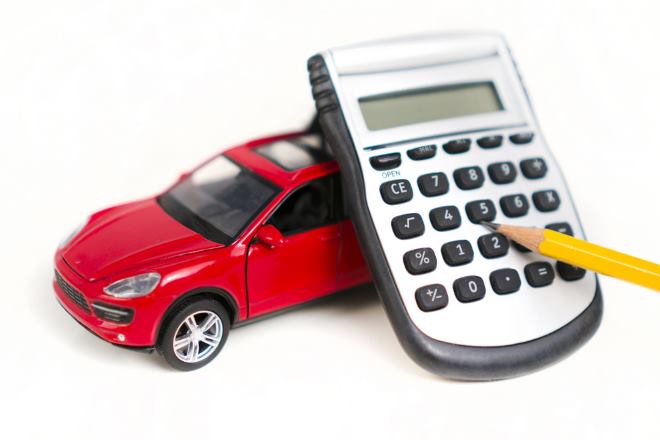Used Car Buying Guide: Essential Tips for UAE Buyers
When considering the purchase of a reliable used car in the UAE, several key factors come into play that can significantly influence the buying experience. It is essential to research and understand the various financing options available, as these can vary widely and impact overall affordability. Additionally, the condition of the vehicle should be thoroughly assessed, including a comprehensive inspection of its mechanical and aesthetic aspects. This ensures that potential buyers are aware of any underlying issues that could lead to future expenses. Negotiating the price is another critical component; being informed about market values can empower buyers to secure a fair deal. By following these expert tips, individuals can navigate the used car market in the UAE with confidence, making informed decisions that align with their needs and budget.

Key Financing Options for Purchasing a Used Car in the UAE
Securing appropriate financing is often the first step in your used car journey. UAE banks and financial institutions offer various loan products specifically designed for pre-owned vehicles. Conventional auto loans typically cover 80-90% of the vehicle’s value, with repayment terms ranging from 12 to 60 months. Islamic financing options, compliant with Sharia principles, are widely available through banks like Emirates NBD, ADCB, and FAB.
Personal loans represent another viable option, though they usually carry higher interest rates. Some dealerships partner with financial institutions to offer in-house financing, which can streamline the approval process. Credit cards might work for smaller purchases, but the high interest rates make them less suitable for substantial amounts.
How to Assess the Condition of a Used Vehicle Effectively
Thorough vehicle inspection prevents costly surprises after purchase. Start with the exterior, checking for rust, dents, scratches, and paint inconsistencies that might indicate accident damage. Examine tire wear patterns, as uneven wear suggests alignment issues or suspension problems.
Under the hood, inspect fluid levels, belt condition, and listen for unusual engine sounds. The interior assessment should cover seat wear, electronic systems functionality, and air conditioning performance - particularly crucial in the UAE’s climate. A professional pre-purchase inspection from authorized service centers costs between AED 200-500 but can save thousands in potential repair costs.
Test driving remains essential. Pay attention to steering responsiveness, brake performance, transmission smoothness, and any unusual vibrations or noises during different driving conditions.
Understanding the Importance of Vehicle History Reports
Vehicle history reports provide crucial insights into a car’s past, revealing accident history, service records, and ownership details. In the UAE, these reports help identify vehicles with flood damage, major accidents, or outstanding finance obligations.
Several providers offer comprehensive vehicle history services. These reports typically include accident records from insurance companies, service history from authorized dealers, and registration details from traffic authorities. While some basic checks might be free, comprehensive reports usually cost between AED 50-150.
Always verify the Vehicle Identification Number (VIN) matches across all documents and the physical vehicle. Be particularly cautious of cars with multiple previous owners or gaps in service history, as these might indicate underlying issues.
Tips for Negotiating the Best Price on a Used Car
Successful negotiation requires thorough market research and preparation. Use online platforms like Dubizzle, CarSwitch, and dealer websites to establish fair market value for similar vehicles. Consider factors like mileage, condition, service history, and remaining warranty when determining your target price.
Start negotiations below your maximum budget, leaving room for compromise. Point out any discovered issues during inspection as justification for price reduction. Timing can influence negotiations - dealers might be more flexible at month-end or during slower sales periods.
Don’t focus solely on the purchase price. Consider additional costs like registration transfer fees (typically AED 420), insurance, and immediate maintenance needs. Sometimes accepting a slightly higher price for a well-maintained vehicle proves more economical long-term.
| Service Provider | Financing Options | Interest Rates (Approx.) |
|---|---|---|
| Emirates NBD | Auto Loan, Islamic Finance | 3.49% - 7.99% |
| ADCB | Personal Loan, Car Finance | 3.99% - 8.49% |
| FAB | Conventional & Islamic Options | 3.75% - 8.25% |
| RAK Bank | Auto Finance, Personal Loan | 4.99% - 9.99% |
| CBD | Car Loan, Sharia Compliant | 4.49% - 8.99% |
Prices, rates, or cost estimates mentioned in this article are based on the latest available information but may change over time. Independent research is advised before making financial decisions.
Common Pitfalls to Avoid When Buying a Used Car in the UAE
Many buyers rush decisions without adequate research, leading to expensive mistakes. Avoid purchasing without proper documentation verification - ensure the seller has clear title, valid registration, and no outstanding fines. Some sellers might not disclose accident history or mechanical issues, making independent inspection crucial.
Financing traps include accepting the first loan offer without shopping around, or agreeing to extended warranties that duplicate existing coverage. Be wary of deals that seem too good to be true, as they often involve hidden problems or fraudulent activities.
Another common mistake involves inadequate insurance consideration. UAE law requires comprehensive insurance for financed vehicles, and premiums vary significantly based on car value, driver profile, and coverage level. Factor these ongoing costs into your budget calculations.
Purchasing a used car in the UAE requires careful consideration of multiple factors, from financing arrangements to thorough vehicle evaluation. By understanding available financing options, conducting proper inspections, utilizing vehicle history reports, negotiating effectively, and avoiding common pitfalls, buyers can make informed decisions that provide reliable transportation and good value for money. Remember that patience and due diligence during the buying process often prevent costly problems later.




